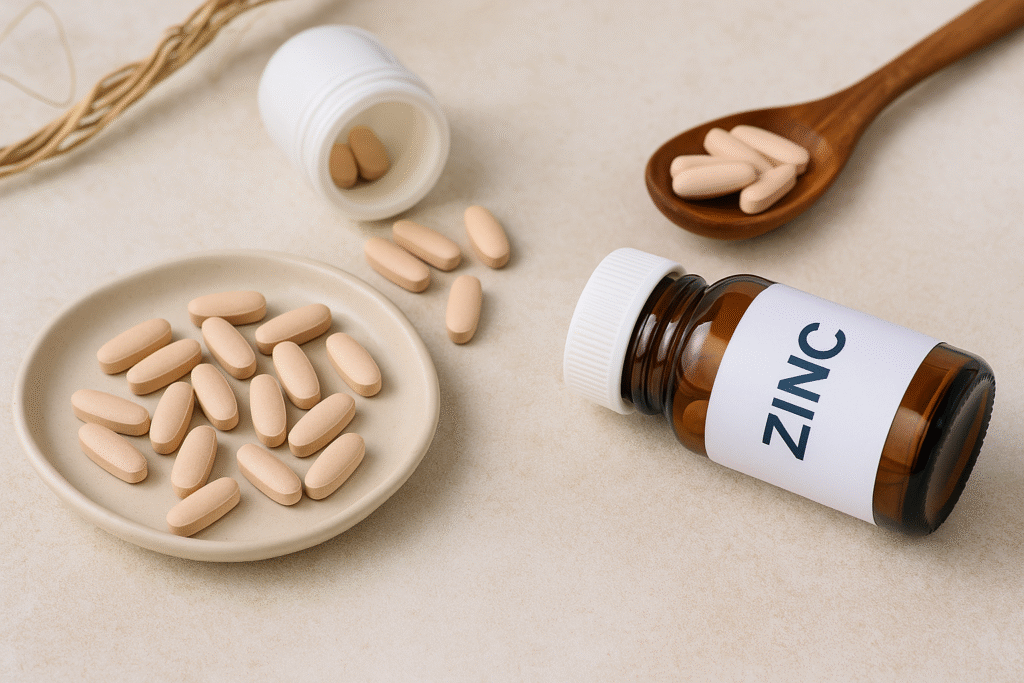Why zinc should not be missing from your skincare routine
Whether it's blemishes, irritated skin or acne - the term is being used more and more frequently in skin care circles: Zinc. But what is really behind the trace element? And how exactly is the Zinc effect on the skin scientifically proven?
Here you can find out everything you need to know about zinc - compact, well-founded and suitable for everyday use.
What is zinc actually?
Zinc is a vital Trace elementwhich is involved in more than 300 enzymatic processes in the body. It is particularly well known for:
- Cell division & regeneration
- Immune system & wound healing
- Skin renewal & sebum regulation
- Protection against oxidative stress
As our body cannot produce zinc itself, a regular supply via food or care products is essential.
Zinc effect on the skin - scientifically explained
1. Anti-inflammatory treatment for acne & pimples
Zinc reduces inflammatory messengers and inhibits the growth of acne bacteria (e.g. C. acnes). Zinc is a natural antagonist, particularly in the case of hormonal acne.
2. Regulation of sebum production
Zinc influences the enzyme 5-alpha-reductasewhich converts testosterone into DHT - a factor in oily skin & acne. Result: less sebum, finer pores.
3. Wound healing & scar prevention
Whether minor injuries or spots - zinc accelerates skin regeneration and supports collagen formation.
4. Protection from free radicals
As an antioxidant, zinc helps to protect the skin from harmful environmental influences such as UV radiation and air pollution - a natural anti-ageing factor.
5. Relief for skin diseases
Studies show positive effects for:
- Neurodermatitis
- Rosacea
- Psoriasis
- Perioral dermatitis
Sources of zinc in the diet
| Food | Zinc content (mg per 100 g) |
|---|---|
| Beef | 4.8 mg |
| Pumpkin seeds | 7.0 mg |
| Lenses | 3.5 mg |
| Oat flakes | 3.0 mg |
| Cashew nuts | 5.3 mg |
| Cheese (e.g. Emmental) | 3.9 mg |
The recommended daily dose is approx. 7-10 mg for women and 10-15 mg for men - depending on the life situation (e.g. pregnancy, sport).
Zinc as a dietary supplement: yes or no?
Zinc supplements can be useful for
- Skin problems
- Susceptibility to infection
- Vegetarian/vegan diet
- Hormonal imbalance
But beware: zinc can compete with copper - therefore Do not permanently take high doses without consulting a doctor take.
Zinc in skin care
You can find zinc applied topically (externally) in, for example
- Zinc ointments for pimples
- Mineral sun cream (zinc oxide)
- Mattifying care products
- Masks against impurities
✅ Conclusion: Zinc - small but mighty
Zinc acts on several levels simultaneouslyantibacterial, sebum-regulating, wound-healing and protective. If you want to tackle skin problems naturally, you should definitely take a closer look at zinc - in nutrition and Care.
